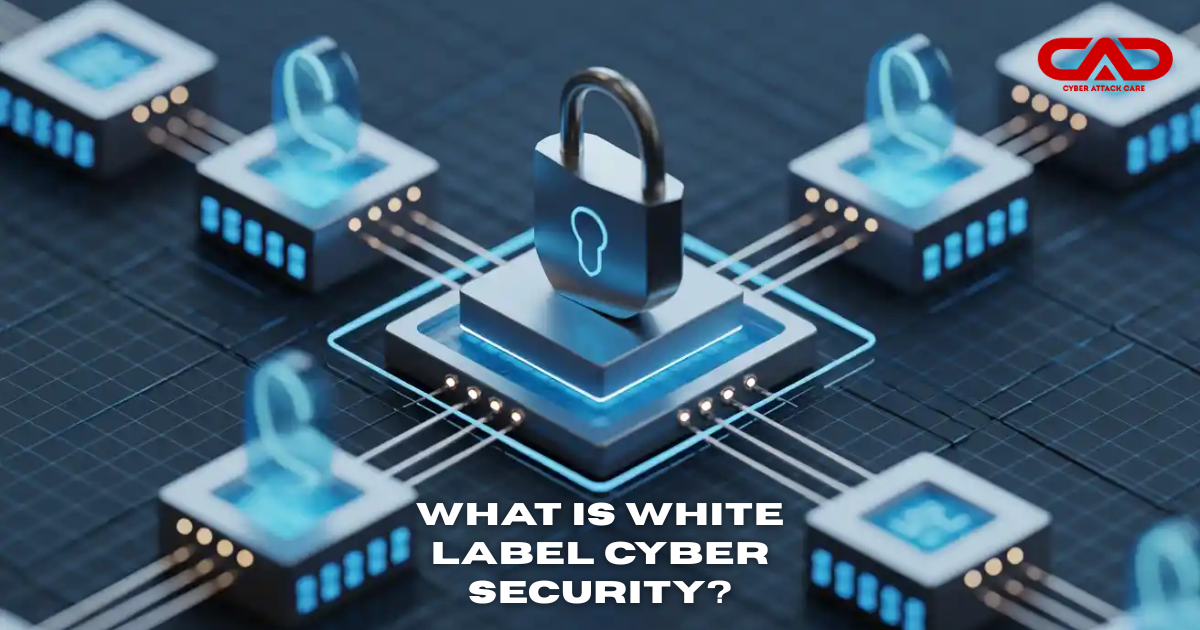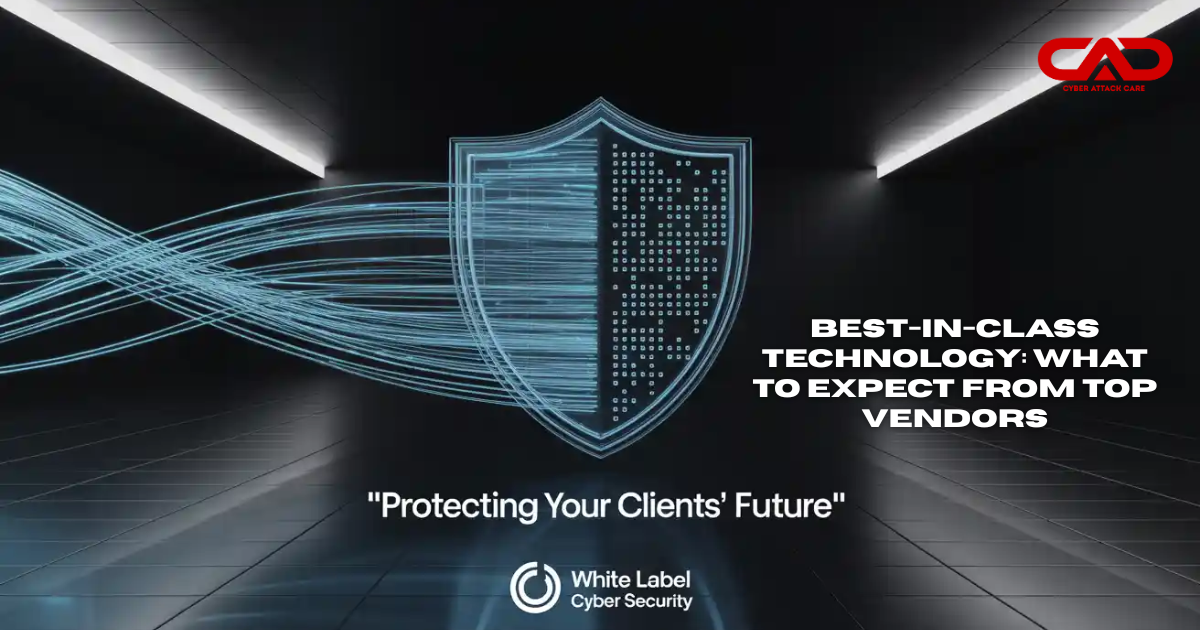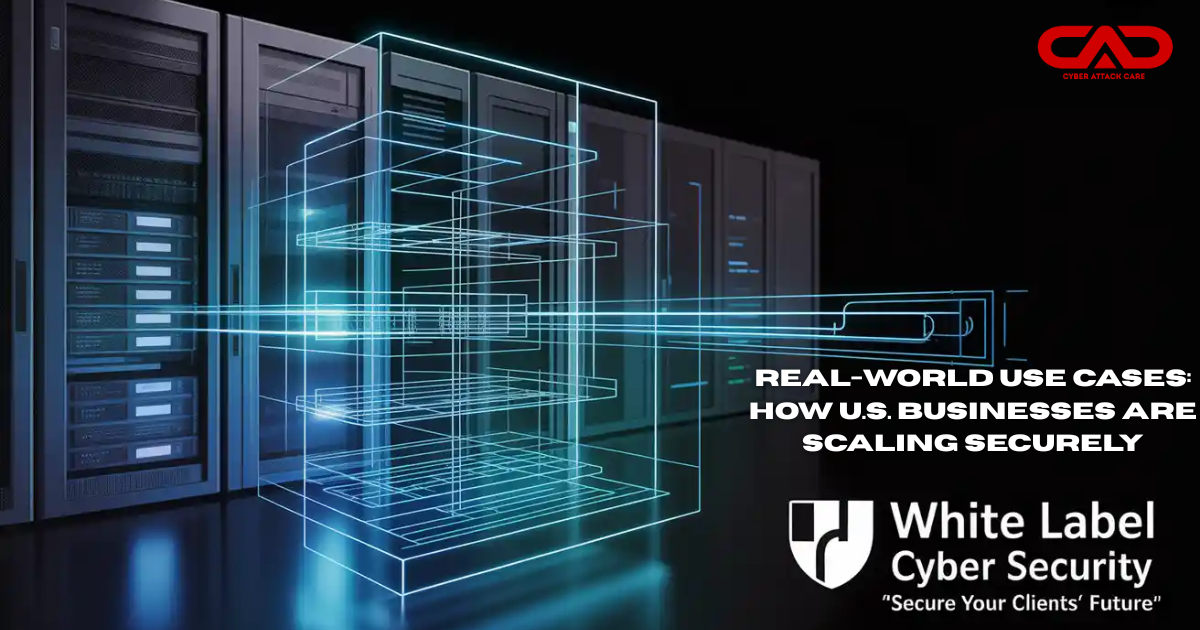White label cyber security is the ultimate game-changer for MSPs, IT consultants, and SaaS firms in the U.S. looking to expand their cybersecurity offerings without building everything in-house. As cyber threats become more sophisticated, businesses are demanding enterprise-grade security—and they want it fast, reliable, and seamlessly integrated into their IT infrastructure.
This is where white label cyber security comes into play. It allows you to rebrand and resell proven cybersecurity solutions like VPNs, antivirus, and SOC-as-a-Service, under your own name. Not only do you get to offer premium protection, but you also position your company as a trusted, full-service provider—without the burden of hiring or training a cybersecurity team from scratch.
In 2025, the demand for flexible and affordable security solutions is higher than ever. Whether you’re offering white label cyber security training, endpoint protection, or compliance-ready tools for HIPAA and GDPR, clients want partners who can scale and adapt. By adopting a white label approach, you’re future-proofing your service portfolio and tapping into one of the fastest-growing markets in tech.
This guide explains how white label cyber security works, why it’s transforming the MSP landscape, the benefits and limitations of this model, and how to choose the right partner for long-term success.
What is White Label Cyber Security?

White label cyber security involves a third-party provider delivering cybersecurity services that MSPs and resellers rebrand and offer as their own. This enables companies to offer high-quality security services—like threat monitoring, endpoint protection, and SOC-as-a-Service—under their own brand, without developing these capabilities internally.
For instance, an MSP in Texas might partner with a trusted cybersecurity vendor offering SIEM (Security Information and Event Management), and seamlessly integrate it into their service portfolio.
Why It’s a Game-Changer for MSPs & IT Firms
U.S.-based MSPs face growing pressure to deliver sophisticated, enterprise-grade security solutions. White label cybersecurity offers a competitive advantage by providing:
- Faster time to market – Launch services quickly without extensive R&D
- Cost-effective scaling – Avoid building large in-house teams
- Service scalability – Grow without proportionally increasing internal resources
- Improved client retention – Deliver more value within existing contracts
How White Labeling Works in the Cybersecurity Industry
White label cybersecurity partnerships typically follow this model:
- A vendor supplies the cybersecurity tools and infrastructure
- The MSP or IT firm rebrands and resells the service
- The end-client receives protection under the MSP’s branding—often unaware it’s outsourced
Typical services include:
- Threat intelligence and response
- 24/7 security monitoring (SOCaaS)
- Endpoint Detection and Response (EDR)
- Compliance assistance for HIPAA, GDPR, and PCI-DSS
- White label antivirus and endpoint security tools
- White label VPN and encrypted browsing solutions
- Security operations center (SOC) as a service
Benefits of White Label Cyber Security for U.S.-Based Providers
For MSPs and value-added resellers (VARs), the white label model delivers:
- Stronger brand positioning – Offer services under your own label
- Operational efficiency – Eliminate the need for in-house cybersecurity experts
- Regulatory alignment – Leverage the vendor’s up-to-date compliance capabilities
- Expanded service offerings – Add advanced solutions like firewall management, SIEM, and penetration testing with minimal setup
Best-In-Class Technology: What to Expect from Top Vendors
Partnering with a leading white label cybersecurity provider gives you access to:

- Next-generation firewalls and intrusion prevention systems
- Zero Trust architecture for layered defense
- AI and machine learning for proactive threat detection
- Real-time incident response and automated workflows
- Encrypted data storage and transmission
- White label VPN pricing plans and scalable infrastructure
Top vendors also integrate smoothly with MSP platforms like ConnectWise, Kaseya, and Datto, streamlining operations.
Examples of white label VPN providers include NordVPN White Label, Symlex VPN White Label, and PureWL, each offering custom branding and billing solutions.
The Limits of White Label Cyber Security: What You Should Know
While powerful, white label cybersecurity does come with limitations:
- Limited transparency – You’re relying on another provider’s infrastructure
- Support dependency – Quality and speed of support vary by vendor
- Reduced customization – Services may lack full flexibility for niche needs
- Reputational risk – If the vendor fails, your brand is on the line
These risks make vendor due diligence absolutely critical.
Choosing the Right White Label Cybersecurity Partner
To choose the right partner, evaluate:
- Response and escalation times
- Certifications like SOC 2, ISO 27001, and compliance expertise
- Platform integration capabilities
- White label marketing materials such as reports, proposals, and dashboards
- Transparent pricing models that allow you to scale confidently
Look for partners who treat your success as their own.
Real-World Use Cases: How U.S. Businesses Are Scaling Securely

A New York-based SaaS company recently launched white label SOC services for its B2B customers. Instead of spending over $250,000 to build a security team, the firm partnered with a vendor to deliver round-the-clock threat monitoring in just a few weeks.
Similarly, a Florida IT consultancy tapped into HIPAA-compliant cybersecurity services via a white label provider, quickly gaining access to the healthcare sector.
How to Pitch White Label Cybersecurity Services to Clients
When presenting white label cybersecurity services to prospects, focus on outcomes and trust:
- “We provide 24/7 U.S.-based threat monitoring by certified professionals”
- “Our platform offers AI-powered analytics and real-time alerts”
- “Your sensitive data is protected with end-to-end encryption”
Also, provide case studies, testimonials, and third-party certifications to strengthen your pitch.
FAQs About White Label Cyber Security
What is white label cyber security training?
It’s cybersecurity education and certification programs that MSPs or training centers can rebrand as their own. These programs are ideal for IT consultants offering courses to clients or internal teams.
What is white label antivirus?
White label antivirus allows resellers to offer branded antivirus protection powered by a third-party engine—ideal for MSPs offering endpoint security to SMBs.
What is a white label VPN?
White label VPN services let companies provide private, secure browsing under their own brand. Providers like NordVPN and Symlex offer white label VPN pricing models and admin panels.
What are white label security operations services?
These include SOC-as-a-Service, log monitoring, and threat detection delivered under your brand but powered by a third-party team.
What is PureWL?
PureWL is a white label VPN provider offering custom apps, billing integration, and multi-platform support for resellers worldwide.
Final Thoughts: Is White Label Cyber Security Right for You?
White label cyber security continues to prove itself as one of the most scalable, efficient ways to deliver security services in today’s complex threat landscape. For U.S.-based MSPs, SaaS providers, and IT consultants, it offers a unique opportunity to expand service offerings while maintaining brand integrity.
With flexible pricing, best-in-class tools, and ever-evolving protection options like white label VPNs, antivirus, and security operations services, the value of white label cyber security is unmatched. It’s not just about keeping pace—it’s about leading in a competitive industry.
As more businesses seek all-in-one IT solutions, those offering rebranded, fully managed cyber services will stand out. White label cyber security enables just that—ensuring that you meet client demands while remaining agile, efficient, and profitable.
Whether you’re looking to boost revenue, streamline service delivery, or launch your brand in the cybersecurity space—white label cyber security is the future-forward strategy worth investing in.